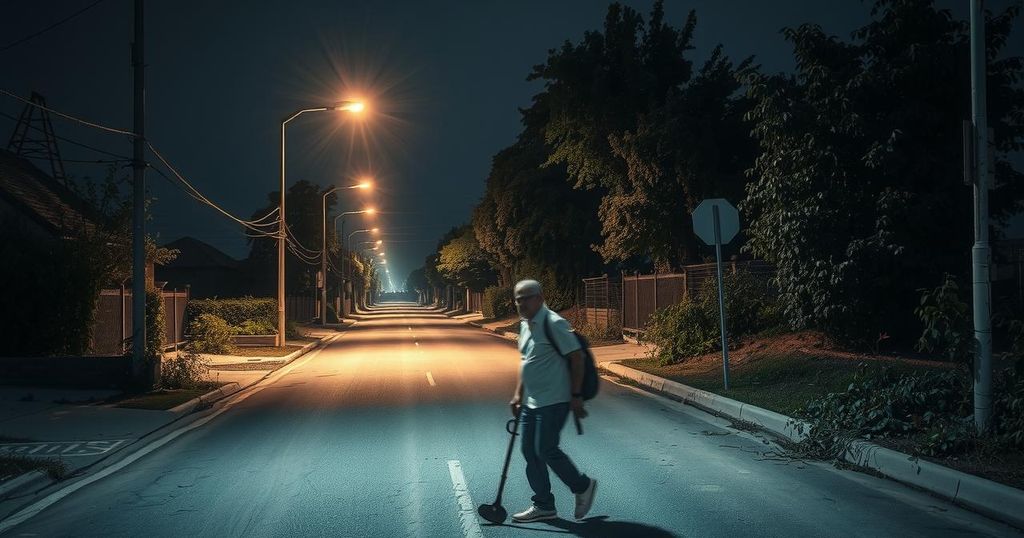World news
AFRICA, BELGIUM, CIVIL WAR, CONGO (KINSHASA), CORN, CORNEILLE NANGAA, DEMOCRACY, DEMOCRATIC REPUBLIC OF CONGO, DRC, EUROPE, FELIX TSHISEKEDI, GOMA, HUMANITARIAN, KINSHASA, KIVU, M23, MILITARY, NBC NEWS, NORTH AMERICA, RWANDA, SOUTH KIVU, TEXAS, TSHISEKEDI, U. S, UNITED NATIONS, UNITED STATES, WAR
David O'Sullivan
0 Comments
Escalating Conflict in the DRC: M23 Rebel Group Seizes Territory and Threatens Stability
The Democratic Republic of Congo faces a severe escalation of conflict as the M23 rebel group captures Goma and threatens further territorial gains. This intensification has led to the displacement of thousands and a humanitarian crisis, with international responses remaining muted. The geopolitical implications of the conflict are significant, given the DRC’s vital mineral resources, particularly cobalt, used in modern technologies.
A severe and deadly insurgency is currently sweeping across the Democratic Republic of Congo (DRC), a nation rich in minerals, including vital components for technological products. The rebellious group known as M23 has intensified its campaign by expanding southward from Goma, marking the most significant escalation in a conflict that has persisted for over thirteen years. The United Nations has expressed concerns that this escalation could lead to wider regional warfare, given the DRC’s history of intense conflict.
The M23 rebel group recently captured Goma, an essential urban area in the eastern part of the DRC, and its leader, Corneille Nangaa, declared intentions to advance towards the capital, Kinshasa. In response to this threat, the Congolese government is mobilizing its armed forces, with President Félix Tshisekedi committed to reclaiming every inch of the nation’s territory lost to rebels. The conflict’s toll is significant; more than 400,000 individuals were displaced just last month, escalating the humanitarian crisis in the region.
The DRC’s history of turmoil dates back to before its independence from Belgium in 1960. Recently, conflict dynamics have intensified, particularly since January, with increased clashes between national troops and M23, allegedly backed by Rwanda. The grave situation in Goma is described by Tshisekedi’s office as “dramatic,” highlighting the dire conditions faced by civilians amidst widespread violence and lack of essential services.
International response to the situation has been tepid, with only limited engagement from foreign nations. The brutality of the ongoing conflict forced Romanian mercenaries sent to support the Congolese government to seek refuge at a U.N. base after their failure on the battlefield. Leaders like French Foreign Minister Jean-Noël Barrot have met with Congolese authorities, reflecting the growing international concern, although protests in Kinshasa indicate dissatisfaction with the perceived inaction of global players.
The M23 group, primarily composed of ethnic Tutsi, emerged in 2012 amidst rising ethnic tensions in the region, particularly following the Rwandan genocide in 1994. The group advocates for minority rights and has historically been accused of receiving support from Rwanda’s government under President Paul Kagame. Nonetheless, Rwanda denies these allegations, framing its involvement as a defensive measure against DRC government actions perceived as threatening to ethnic Tutsis.
The DRC remains an economic focal point due to its abundant mineral resources, with over 80% of its cobalt output being controlled by Chinese companies. Cobalt is crucial for lithium-ion batteries used in smartphones and electric vehicles. Amidst the conflict, Chinese officials have expressed concerns over the potential for greater instability affecting mineral supply chains, emphasizing the region’s strategic importance to global electronics.
Rwanda’s role in the renewed conflicts is complex; despite past concessions following previous insurgencies, current dynamics suggest continued support for M23 amid a backdrop of decreased international scrutiny. Western countries, while publicly critical at times, have largely maintained their aid to Rwanda, balancing geopolitical interests. The evolving conflict illustrates the intricate relationships and dependencies shaping international response and engagement in Central Africa.
The Democratic Republic of Congo, a large nation rich in valuable minerals, has been plagued by conflict since gaining independence in 1960. The M23 insurgency, which has roots in historical ethnic tensions between Tutsi and Hutu populations, re-emerged in recent years, exacerbating existing humanitarian crises and displacing large populations. As external actors, including Rwanda, engage in the conflict both covertly and overtly, the dynamics threaten to draw in global interests due to the DRC’s critical position in the mineral supply chain.
The current conflict in the Democratic Republic of Congo, led by the M23 rebel group, poses significant humanitarian and geopolitical challenges. With increasing displacement of civilians and historical ethnic tensions resurfacing, the situation remains critical. International response appears insufficient, risking further destabilization in a region essential to global mineral supplies, particularly cobalt. The complexities surrounding Rwanda’s involvement and the response from Western powers add layers of tension and uncertainty to the ongoing crisis.
Original Source: www.nbcnews.com




Post Comment